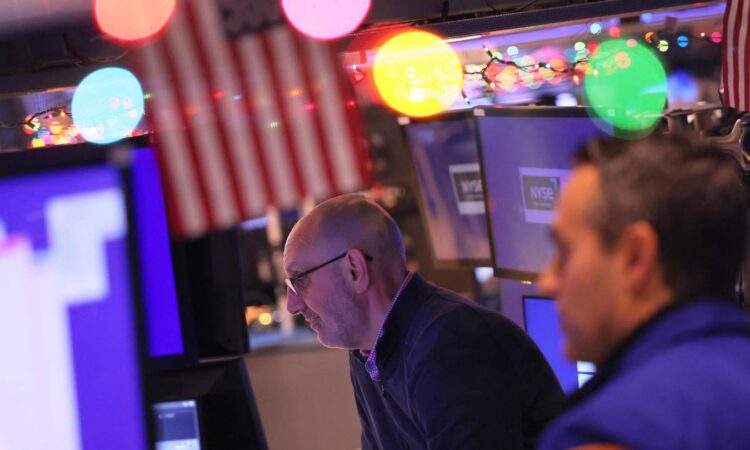
Stock markets around the world ended the first trading week of 2023 on a high note, on expectations that the US Federal Reserve will tone down its interest rate hikes this year and hopes of a continued global economic recovery.
Wall Street, in particular, pared early losses on Friday, buoyed by the latest US jobs report. It showed that America’s economy added a solid 223,000 jobs in December and the unemployment rate dipped from 3.6 per cent to 3.5 per cent, which was the lowest in 53 years.
The world’s biggest economy, however, is still grappling with high inflation, making it more likely that the Fed will continue with its interest rate hikes. That spectre was raised by the US central bank’s minutes released this week, which appeared to indicate that authorities are unlikely to cut back on last year’s historic increases.
High inflation decreases the power of consumer spending, which accounts for about two thirds of the US economy.
“Stronger-than-expected jobs data will certainly boost inflation expectations, bring the Fed hawks back to the market, send the US yields and the dollar higher, and stocks lower,” Ipek Ozkardeskaya, a senior analyst at Swissquote Bank, wrote in a note.
At the closing bell in New York on Friday, the Dow Jones Industrial Average settled 2.1 per cent higher, the S&P 500 rose 2.3 per cent and the tech-heavy Nasdaq Composite gained 2.6 per cent.
For the week, the indices added 1.5 per cent, 1.4 per cent and 1 per cent, respectively.
Last Friday, US stock markets ended 2022 on a sour note, capping their worst year since 2008, which was the height of the global financial crisis. The whirlwind year saw the Dow lose about 9 per cent, the S&P 500 giving up almost 20 per cent and the Nasdaq shedding a third.
Still, both the Dow and S&P 500 rebounded in the fourth quarter of 2022, adding more than 15 per cent and 7 per cent, respectively. The Nasdaq shed about 1 per cent during the three-month period.
In Europe, London’s FTSE 100 closed 0.9 per cent higher, Frankfurt’s DAX rose 1.2 per cent and Paris’ CAC 40 gained 1.5 per cent.
Annual inflation in the eurozone declined to 9.2 per cent in December, a second consecutive month of decline and the first to go into single digits since September, official data showed on Friday.
Earlier in Asia, Tokyo’s Nikkei 225 settled 0.6 per cent higher and the Shanghai Composite inched up 0.1 per cent.
Hong Kong’s Hang Seng, however, snapped a three-day winning streak, declining 0.3 per cent at the close.
In commodities, oil prices posted losses at the end of the first trading week of 2023 as demand concerns continue to weigh on the market amid signs of a global economic slowdown.
Brent, the benchmark for two thirds of the world’s oil, closed 0.15 per cent lower at $78.57 a barrel. West Texas Intermediate, the gauge that tracks US crude, settled 0.14 per cent higher at $73.77 a barrel.
Gold for February delivery, meanwhile, climbed $29.10, or about 1.6 per cent, to settle at $1,869.70 an ounce.
The precious metal is expected to be stable in 2023 despite a number of challenges, with the interplay between inflation and central bank intervention key in determining its outlook, the World Gold Council has said.
Updated: January 07, 2023, 11:59 AM





